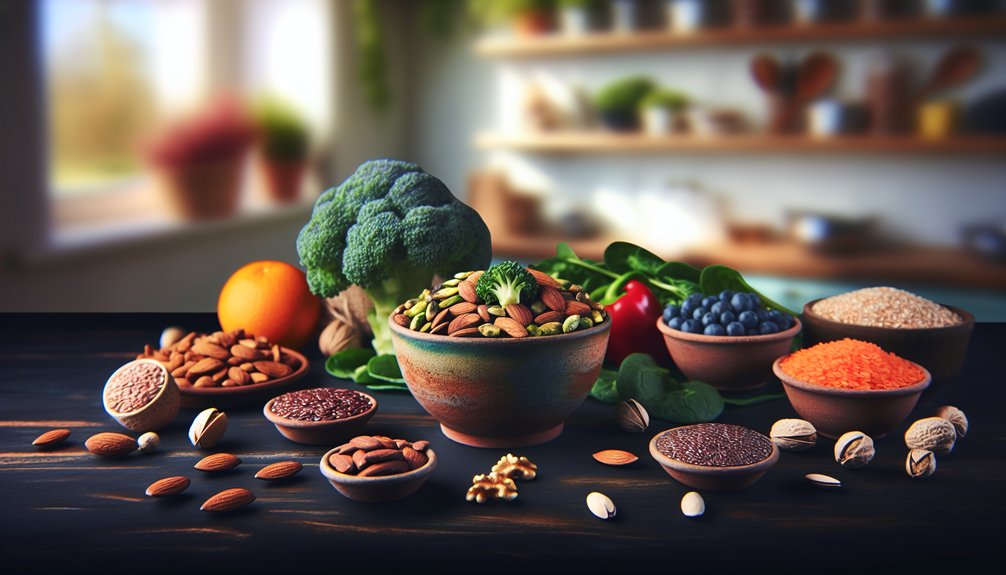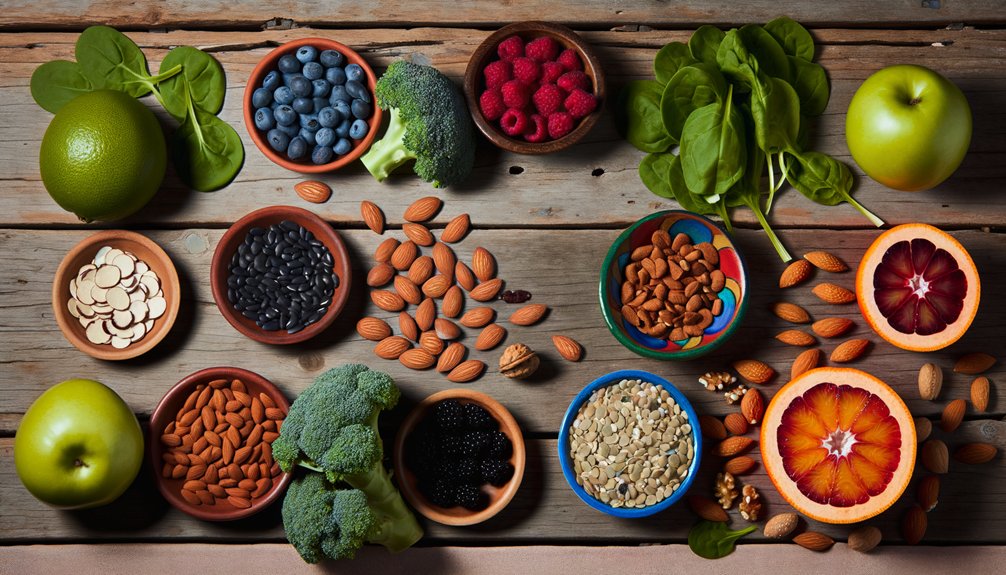For diabetics, incorporating nuts, seeds, beans, lentils, whole grains, non-starchy vegetables, and fruits like berries and citrus can do wonders for managing blood sugar. These foods are not only nutritious but also rich in fiber and healthy fats. Picture enjoying a handful of almonds to curb hunger or savoring a bowl of quinoa. It’s all about feeling satisfied while making smart choices. With each bite, individuals can find balance and happiness on their health journey. Discover the delicious details ahead!

When it comes to managing diabetes, choosing the right foods can feel like maneuvering through a maze, but it doesn’t have to be frightening. Many people discover that incorporating nuts and seeds into their diet can be a game changer. These little powerhouses are rich in healthy fats, magnesium, and fiber, all of which help regulate blood sugar levels.
For example, walnuts and flaxseeds are particularly beneficial for heart health, which is vital for diabetics. Just a small ounce of almonds or pistachios daily can also help curb hunger, preventing those pesky overeating episodes.
Beans and lentils serve as another cornerstone of a diabetic-friendly diet. Packed with fiber and protein, they slow down digestion and keep blood sugar levels steady.
Beans and lentils are essential for a diabetic-friendly diet, providing fiber and protein that help stabilize blood sugar levels.
Studies have shown that adding black beans or chickpeas to meals can greatly lower post-meal blood glucose spikes. These legumes not only help with blood sugar control but also promote a feeling of fullness, making them excellent choices for anyone trying to manage their weight.
Whole grains are yet another great option. Foods like oats, quinoa, and brown rice are rich in fiber, which acts like a protective shell around carbohydrates, slowing their digestion.
While they do contain carbs, the benefits of whole grains, such as lowering cholesterol and reducing chronic disease risks, are hard to ignore.
Non-starchy vegetables like broccoli and spinach are also essential. With their low carbohydrate content, they’re nutrient-dense and can be eaten in large quantities without worrying about blood sugar spikes.
Finally, berries and citrus fruits provide a sweet touch without the guilt. They are packed with vitamins and antioxidants, helping satisfy cravings while improving insulin sensitivity.
Incorporating these foods into daily meals can turn the challenging task of managing diabetes into a delightful culinary journey. With the right choices, a fulfilling and healthy life is within reach.
Following a Mediterranean diet plan can reduce diabetes risk by 17% through its emphasis on nutrient-rich foods and healthy fats.
